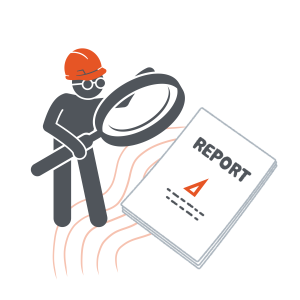S2760 Law Update for 2025: What New Jersey Property Owners Need to Know
Understanding New Jersey’s S2760 Law
New Jersey’s S2760 law, originally enacted to improve building safety and financial preparedness in common-interest communities, continues to shape how HOAs and co-op boards plan for the future. The law was introduced in response to growing national attention on structural integrity after the tragic Surfside condominium collapse in Florida. In 2025, S2760 remains active and increasingly relevant, especially as associations face approaching deadlines and tighter expectations around compliance.
The law requires certain residential buildings to undergo structural inspections and develop a long-term capital reserve plan, often through a Reserve Study. These efforts aim to ensure that community associations are financially prepared for major repairs and that buildings remain safe for residents over time.
What’s New in 2025
Increased enforcement and oversight
As of 2025, local jurisdictions in New Jersey have ramped up enforcement efforts related to S2760. Associations that delayed compliance in previous years may now face audits, additional inspections, or fines. Some parties have begun requiring proof of a current Reserve Study or capital plan as a condition for permit approvals or condominium registration.
Greater demand for licensed professionals
With more associations seeking to comply, the demand for licensed engineers and architects to perform Reserve Studies and structural evaluations has risen significantly. Scheduling delays are common, especially in more densely populated counties like Monmouth, Middlesex, and Bergen.
Associations are encouraged to plan ahead and begin the process early in the year to ensure they meet any local or state deadlines without incurring penalties or delaying planned repairs.
Emphasis on structural integrity assessments
While financial projections are a key part of a Reserve Study, the 2025 interpretation of S2760 places growing importance on structural condition evaluations. Boards must be prepared to show that their Reserve study isn’t just a spreadsheet of costs—it needs to be rooted in a real, physical assessment of roofs, facades, balconies, and other critical components.
What This Means for HOAs and Property Managers
Reserve studies are no longer optional
In previous years, Reserve Studies were considered best practice. Under S2760, they are a legal expectation for many associations. Not only does this protect the board from potential legal exposure, but it also reassures residents and future buyers that the community is financially and structurally sound.
Delays could impact budgets and repairs
Failing to plan for structural maintenance can lead to deferred repairs, surprise special assessments, and dissatisfied residents. By completing a Reserve Study that aligns with the S2760 requirements, associations gain clarity on when major expenses are coming and can budget accordingly.
Boards should document compliance efforts
Transparency is key. Boards should keep detailed records of all inspections, capital Reserve Studies, and maintenance decisions. This not only shows good faith in complying with the law, but also demonstrates due diligence in case issues arise.
How to Comply with S2760 in 2025
Schedule a Reserve Study with a licensed engineer
The most important step in complying with S2760 is securing a Reserve Study performed by a licensed professional. Look for a firm with experience in both structural assessments and long-term financial planning for community associations.
Work with local experts who understand New Jersey law
Each party may have slightly different interpretations or requirements tied to S2760. Working with professionals who are already familiar with local code enforcement and HOA expectations can save you time, money, and headaches.
Moving Forward in 2025
For New Jersey HOAs and property managers, the S2760 law is not just another regulation—it’s a call to take proactive, responsible steps toward building longevity and community safety. As oversight tightens in 2025, compliance isn’t just smart—it’s essential.
If your community has not yet performed a compliant Reserve Study, now is the time to act. Planning today means fewer surprises tomorrow and a stronger, more resilient community for years to come.

